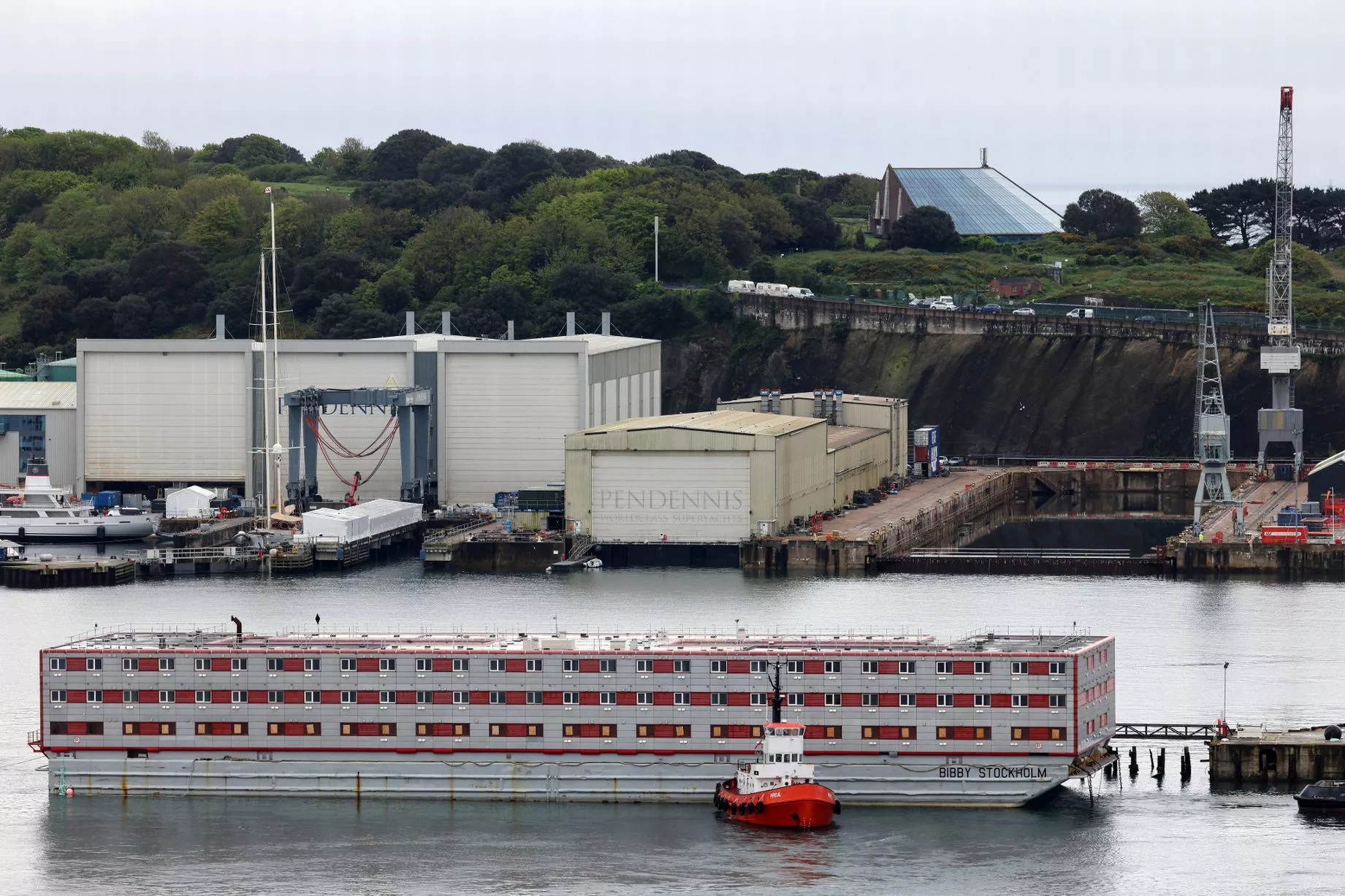UK (Parliament Politic Magazine) – A barge capable of accommodating up to 500 asylum-seekers arrived in England on Tuesday, following the successful passage of a long-debated bill aimed at controlling migration in Parliament. The Bibby Stockholm, towed by a tugboat, docked at Portland after the government’s contentious legislation overcame opposition in the House of Lords. The boat and the bill are integral components of Prime Minister Rishi Sunak’s comprehensive strategy aimed at curbing the perilous English Channel crossings made by migrants in small boats. This legislation will be enacted once it receives the assent of King Charles III.
Migration Bill Sparks Heated Debate as Parliament Gives the Green Light
The Conservative government has made a resolute commitment to “halt the influx of boats” – referring to the overcrowded dinghies and other diminutive vessels that traverse from northern France, carrying migrants who aspire to establish a new life in the United Kingdom. Shockingly, in the year 2022 alone, over 45,000 individuals undertook this treacherous journey across the Channel, resulting in several tragic fatalities.
The proposed bill aims to discourage such journeys and effectively bar migrants from seeking asylum in the United Kingdom if they arrive through illegal means. According to this legislation, individuals apprehended will be repatriated or deported to a secure country, and will face a permanent ban on re-entry into the UK.
Initially, the government had intended to send unauthorized arrivals to Rwanda, but this plan was deemed unlawful by the Court of Appeal last month. As a result, the government intends to challenge this ruling and seek an appeal from the UK Supreme Court.
The bill was finally approved following an intense all-night struggle on Monday between the House of Commons, where the governing Conservatives hold a majority, and the unelected House of Lords, which possesses the power to amend legislation but not to block it. The elected members of Parliament successfully defeated amendments that aimed to incorporate safeguards for modern slavery and restrictions on child detention.
Parliaments Controversial Vote on Migration Bill
Elected members of Parliament have rejected amendments that sought to incorporate safeguards against modern slavery and impose limits on child detention. Best of Britain, a prominent organization dedicated to preserving reliable international connections post-Brexit, has expressed concerns that this bill will curtail the rights of refugees and asylum-seekers as guaranteed by international law. Furthermore, they argue that it will result in an increased number of individuals being detained, thereby burdening taxpayers financially.
“This cruel bill will now give the government the green light to flout international law and mistreat refugees to distract from their own failure to fix the problems they created when ministers closed safe routes to asylum,” Naomi Smith, CEO of Best for Britain, revealed in a statement: “This policy is not only morally repugnant; it is totally unworkable.”
Simon Murray, the Under Secretary of State for the Home Office and a member of the House of Lords, passionately implored his fellow peers to support the bill. He emphasized that the United Kingdom’s asylum system is currently inundated, causing a strain on resources. Taxpayers are bearing the burden of housing asylum seekers, with an exorbitant cost of £6 million ($7.8 million) per day.
Read More: UK Parliament Withdraws Fund for Queen Camilla’s Official Duties
Parliament’s Passage of Migration Bill Provokes Outcry
A barge capable of accommodating up to 500 asylum-seekers has recently docked in England, coinciding with the passage of a controversial bill by Parliament aimed at curbing migration. The Bibby Stockholm, a vessel specifically designated for this purpose, arrived at Portland on Tuesday, marking a significant milestone as the government’s legislation successfully overcame resistance in the House of Lords. Both the boat and the bill form part of the Conservative Party’s comprehensive strategy to dissuade migrants from undertaking perilous journeys across the English Channel.
The primary objective of the bill is to prevent individuals who have entered the country illegally from seeking asylum in the UK. Instead, the government intends to repatriate detainees to their countries of origin or to a secure nation. Although a proposal to relocate detainees to Rwanda was dismissed by the court, it is anticipated that an appeal will be made.
The government had initially devised a plan to deport individuals who entered the country without proper authorization to Rwanda. However, this plan was deemed illegal by the Court of Appeal last month.

